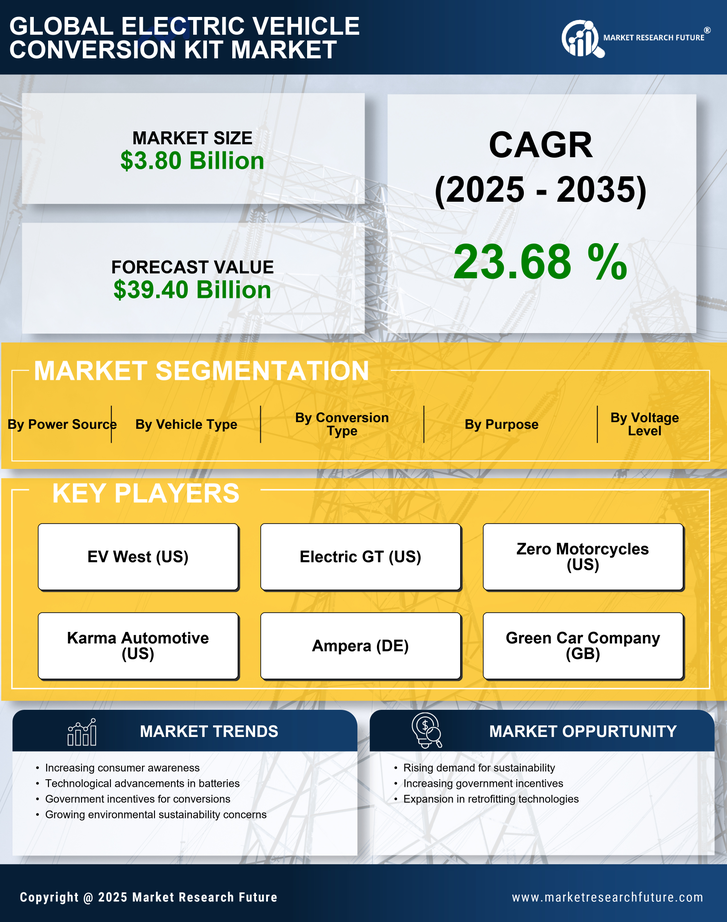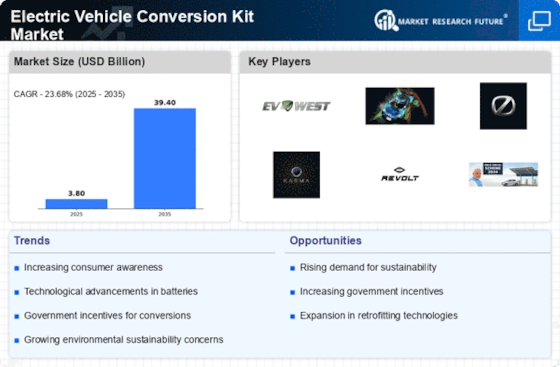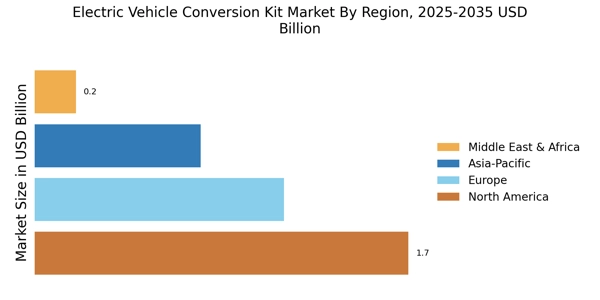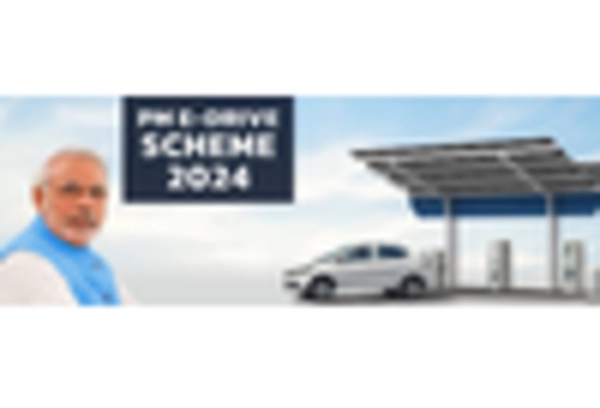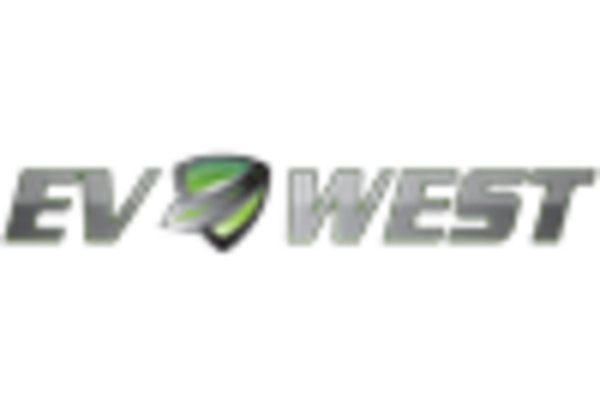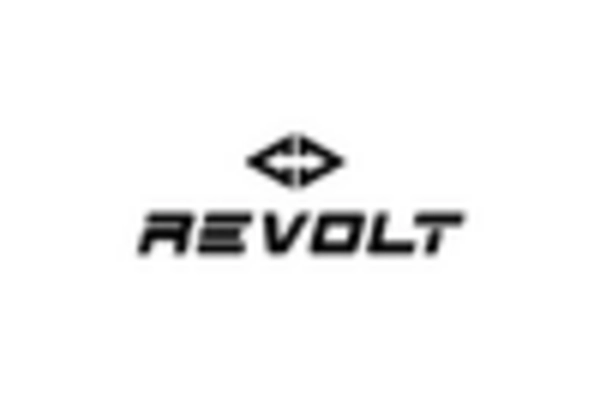Regulatory Support
Regulatory frameworks and policies are increasingly supporting the Electric Vehicle Conversion Kit Market. Governments around the world are implementing stricter emissions regulations and offering incentives for electric vehicle adoption. This regulatory environment encourages consumers to consider electric vehicle conversions as a viable option. For example, some regions provide tax credits or rebates for individuals who convert their vehicles to electric. This not only reduces the upfront costs associated with conversion kits but also aligns with broader environmental goals. As regulatory support continues to grow, the Electric Vehicle Conversion Kit Market is likely to see a surge in interest and investment.
Rising Fuel Prices
The Electric Vehicle Conversion Kit Market appears to be significantly influenced by the rising fuel prices. As traditional fuel costs continue to escalate, consumers are increasingly seeking alternatives to mitigate their expenses. This trend has led to a growing interest in electric vehicle conversion kits, which offer a cost-effective solution for converting existing internal combustion engine vehicles into electric ones. According to recent data, the average price of gasoline has seen a steady increase, prompting vehicle owners to consider electric options. The Electric Vehicle Conversion Kit Market is likely to benefit from this shift, as more individuals and businesses look to reduce their reliance on fossil fuels and embrace electric mobility.
Sustainability Trends
The increasing emphasis on sustainability is a key driver for the Electric Vehicle Conversion Kit Market. As society becomes more conscious of environmental issues, there is a growing demand for sustainable transportation solutions. Electric vehicle conversions offer a way to repurpose existing vehicles, reducing waste and promoting a circular economy. This trend aligns with the broader movement towards sustainable practices across various industries. Additionally, many consumers are actively seeking ways to reduce their carbon footprint, making electric vehicle conversions an appealing option. The Electric Vehicle Conversion Kit Market is likely to thrive as sustainability becomes a central focus for consumers and businesses alike.
Technological Innovations
Technological advancements play a crucial role in shaping the Electric Vehicle Conversion Kit Market. Innovations in battery technology, electric drivetrains, and charging infrastructure have made electric vehicle conversions more feasible and attractive. For instance, the development of high-capacity lithium-ion batteries has enhanced the range and performance of converted vehicles, making them more competitive with traditional vehicles. Furthermore, advancements in software and control systems have improved the efficiency and reliability of electric conversions. As these technologies continue to evolve, the Electric Vehicle Conversion Kit Market is expected to experience increased demand, as consumers seek out the latest solutions for their conversion needs.
Increased Consumer Awareness
Consumer awareness regarding the benefits of electric vehicles is on the rise, positively impacting the Electric Vehicle Conversion Kit Market. As more individuals become informed about the environmental and economic advantages of electric mobility, the demand for conversion kits is expected to grow. Educational campaigns and advocacy efforts have played a significant role in promoting the advantages of electric vehicles, including reduced emissions and lower operating costs. This heightened awareness is likely to drive more consumers to explore electric vehicle conversions as a practical solution. Consequently, the Electric Vehicle Conversion Kit Market stands to gain from this trend as more people seek to transition to electric mobility.
